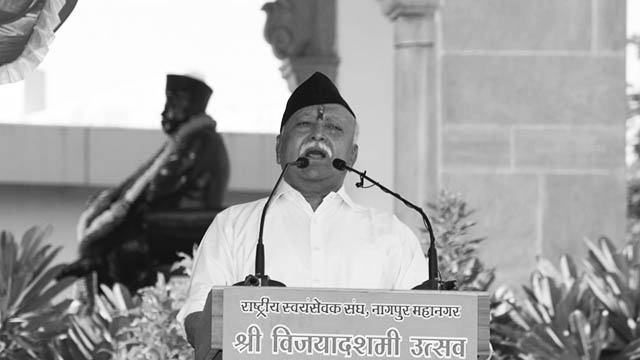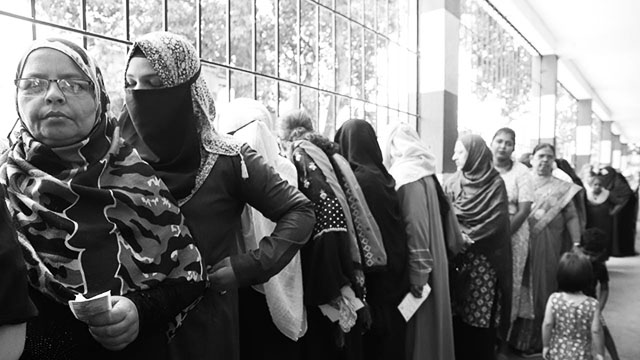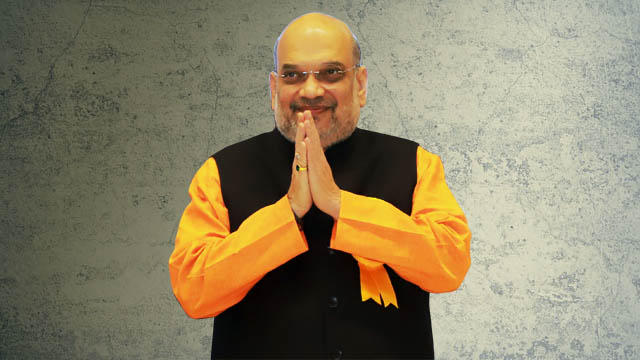The Rashtriya Swayamsevak Sangh’s (RSS) supremo Mohan Bhagwat reportedly told a gathering that India will give the message to the world that there is but one God and different ways to reach him, apparently in a bid to deliver a message of harmony. Bhagwat’s speech conforms to his recent endeavours to underscore the need for communal unity in India, which is apparently paradoxical, considering the RSS’s declared stance on minority communities in India, especially Muslims and Christians.
Bhagwat reportedly said, “People should not fight with one another looking at the multiplicity of paths they have chosen in the search for truth because the truth is one.”
“Our destination is one. Our paths are different. No one person’s path is better than another’s. Everyone’s path leads to the same destination,” he added citing a few fables from the Hindu scriptures called Upanishads.
The RSS chief was speaking at a function held at New Delhi’s Red Fort, a Mughal-era architectural marvel, on the occasion of the launch of the Hindi and Urdu versions of the Hindu scripture Samaveda. The scripture has been translated by Iqbal Durrani, a film writer.
Bhagwat’s speech on the unity of purpose of all faiths comes at a critical juncture when the organisation has been accused of fanning communal hatred and polarising the majority Hindu community using virulent Islamophobic narratives through a myriad of affiliates. The RSS chief has been trying to do an image makeover of the organisation recently, apparently in a bid to gain wider global acceptance.
The Hindutva-driven organisation, which is also the world’s largest private paramilitary force, has been going through a turbulent phase as Bhagwat and other top leaders are reportedly trying hard to maintain a balance between its traditional ultra-nationalist rhetoric, which helps its parliamentary outfit and India’s federally-ruling Bharatiya Janata Party (BJP) to stay afloat, and an attempt to portray itself as an inclusive organisation.
Bhagwat’s speech on the unity of the purpose of different faiths is quite relevant in this context, especially after the RSS’s highest and most important conclave— Akhil Bharatiya Pratinidhi Sabha (ABPS) — concluded in BJP-ruled Haryana’s Panipat. The ABPS had reportedly shown a critical attitude to Bhagwat’s recent manoeuvres to attract the minority Muslims, fearing a backlash from its hardcore Hindutva-incensed support base, especially in the BJP-ruled northern Indian states.
Irrespective of Bhagwat’s apparent attempts to project the RSS, accused of brazen communal violence and hatred, the ABPS report peddled the quintessential Islamophobic bogeys like “love jihad” and “land jihad” to apparently stoke hatred against the minority Muslims.
Bhagwat’s speech on the unity of faiths in this critical period is important, however, it’s not clear at present whether it will be able to change anything at the ground level, where the organisation has been accused of inciting communal tension and polarising the majority Hindu community to help the BJP win elections.




